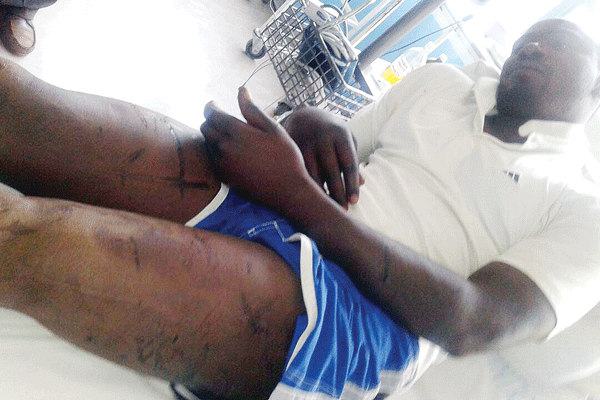
FOR nearly 40 years, Zimbabwe – under former President Robert Mugabe and the ruling Zanu PF party, endured some very trying times from the days of Gukurahundi in the early 1980s, through to Murambatsvina in 2005; the 2000 disastrous land reform programme and the 2009 dollarisation, among many unfortunate happenings of the past. And all of the major events that have punctuated the southern African country’s tortured history have had a damaging effect and lasting bearing on the nation’s human rights record.
NewsDay Comment
Today the majority of the country’s citizens bear scars of those human rights abuses to the point that many are understandably sceptical if not mistrusting of the country’s present day Zanu PF government.
One of the many instances that continue to make the task of correcting the country’s terrible past human rights record a tough call is the enduring plight of thousands of villagers who were displaced in Masvingo province to make way for Zimbabwe’s largest inland lake, the dam. Despite the fact that the relocation was for a noble cause – because it opened up many opportunities for the country to boost its agricultural, tourism and fisheries sector, the development has been more of a curse than a blessing for the displaced villagers.
When, in 2014, government uprooted 18 000 Chingwizi villagers from their ancestral homes to make way for Tugwi-Mukosi Dam, its compensation promise totalled US$9 million and of that amount only US$3,5 million was released leaving a balance of US$5,5 million.
However, fast forward to 2019, the same government has shifted goal posts and wants to now pay the villagers balance in the local currency which it recently reintroduced 10 years after it was rendered useless by runaway hyperinflation.
Understandably, the villagers are arguing: “The government banned the use of forex, but our monies were supposed to be paid long back, so they should give us the equivalent of the money at the prevailing bank rate… The conduct of government contravenes provisions of section 71of the Constitution, which calls for fair and adequate compensation.”
Numerous past examples inform us that such arguments have never swayed the Zanu PF government into acting fairly and respecting the human rights of the country’s nationals. The ruling party’s government has perpetually run roughshod on innocent people’s rights in a similar fashion as it is doing now to the people of Chingwizi. Those hapless villagers may cry till donkeys grow horns, but the Zanu PF government will never lose sleep over their plight, which is why we have reached the conclusion that the task of correcting Zimbabwe’s atrocious human rights record is a tough call and possibly beyond this government.
- Chamisa under fire over US$120K donation
- Mavhunga puts DeMbare into Chibuku quarterfinals
- Pension funds bet on Cabora Bassa oilfields
- Councils defy govt fire tender directive
Keep Reading
Linked to the Chingwizi villagers’ plight is the loss of many other Zimbabweans whose US dollar savings were converted to RTGS dollars not so long ago with government again exhibiting its trademark insensitivity and lack of will to respect citizens’ rights. Such behaviour, unfortunately, will only serve to forever condemn the country as a pariah state.











